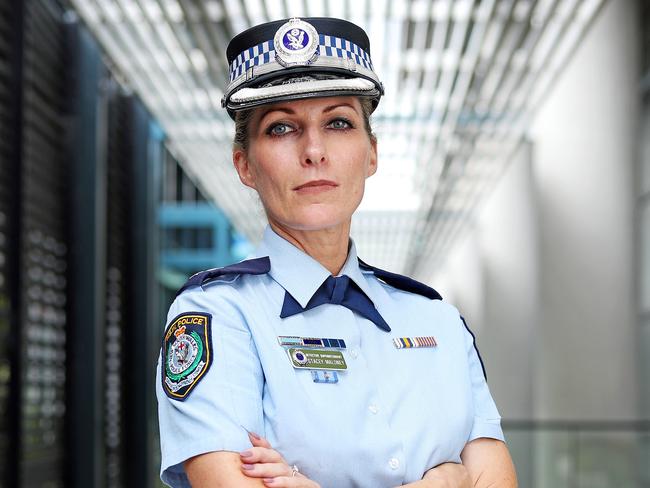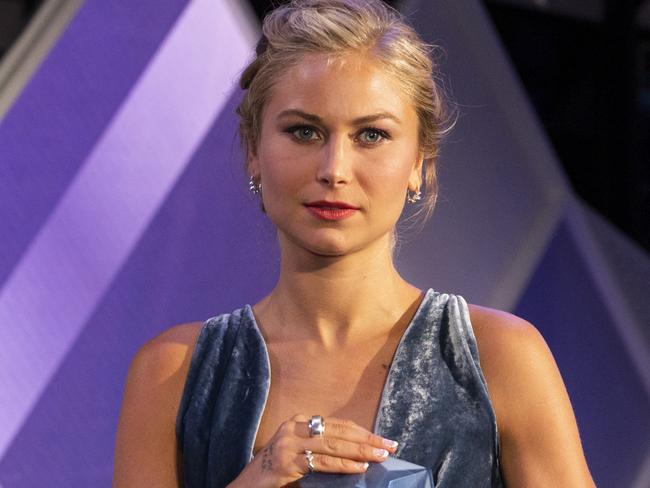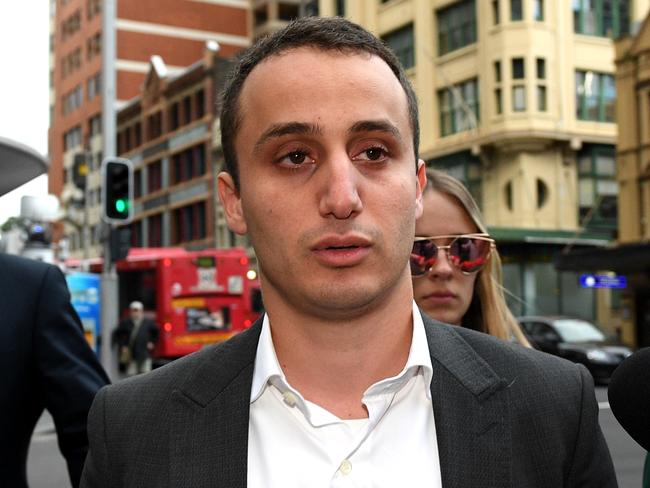New NSW Sex Crimes boss says it’s time to change approach to consent
Rock bottom conviction rates and a system that robs victims of justice proves there is an urgent need for an overhaul of consent laws and a new top cop is determined to make the change.
NSW
Don't miss out on the headlines from NSW. Followed categories will be added to My News.
NSW Police will lobby for an overhaul of consent laws in sexual violence cases in the face of rock bottom conviction rates and a system that robs victims of justice.
In an exclusive interview with The Sunday Telegraph, the new boss of the Child Abuse and Sex Crimes Squad said it was time for “courageous conversation” around the difficult issue of consent because little had changed in 20 years.
NSW is currently considering if it will change the definition of consent because low conviction rates may stop victims coming forward.
It is estimated one in five Australian women have experienced sexual violence but the crime is notoriously under reported. Of the incidents reported to NSW Police in 2018/19, only about three per cent ended in a guilty conviction.
The gruelling trial experience can be traumatic for alleged victims, including those subjected to the public spotlight in high profile cases.

“This is the point of these conversations and putting it at the forefront, not only in our organisation but pushing the government to have a look at some of these issues,” Detective Superintendent Stacey Maloney said.
“The definition of madness is banging your head against a brick wall and getting the same result.
“I think that is what we are doing in this crime category.”
Driving a cultural shift, Det Supt Maloney, who is returning to sex crime investigation after a 10-year stint in 2003, said sex crimes were not just about rape but a suite of behaviours, from lewd phone calls to psychological abuse.
It needed to be viewed holistically as “sexual violence” like domestic violence now is.
“Sexual assault makes up a big portion of that but it’s the understanding around what sexual violence is,” the former Eastern Beaches police crime manager said.
“And what the dynamics of sexual violence look like that this organisation and the community, to be perfectly honest, need to get across and understand. Because until we do that I don’t know if we are going to have the success we need to have in the judicial system to support victims fully in what they experience.
“We looked at (domestic violence) 10-15 years ago and flipped it on it’s head.
“My view is that is what we need to do with sexual violence.”
A “sexual violence strategy” within the NSW Police Force will attempt to do that, including mapping sexual violence incidents to pick up on warning signs and supporting victims when they first walk through the door – regardless of whether make a statement or not.
Sexual abuse is under reported, not just in Australia, but around the globe.
In NSW, when a victim decides to report their traumatic experience to police, the chance their abuser will receive a guilty conviction hovers around three per cent.
Most sexual assault reports don‘t make it to court, even though the Child Abuse and Sex Crimes Squad carries out more arrests than any other squad in NSW Police year on year.
The very public scrutiny of the women in high-profile case, and the impact on their welfare, was a “concern”, Supt Maloney said carefully.
If the sexual assault charges make it to court, 34 per cent result in a guilty conviction, according to 2018/19 data provided to the Law Reform Commission.
The remaining charges are either met with not guilty convictions or withdrawn for a host of reasons, including because the victim can’t face having their word and intimacy tortuously picked apart in a courtroom.
Sexual assault charges are difficult to prosecute because it often comes down to the victim‘s word against the offender’s. At the heart of these cases is consent – a key legal word with a broad definition that has fuelled public debate in recent years.
Consent is defined in law as a free and voluntary agreement and there are a suite of circumstances under which a person can’t consent, including if they are asleep, unconscious or unlawfully detained. But a person can be found not guilty of rape if they had an honest, genuine belief the victim was consenting.
The NSW Attorney-General is currently considering how it will respond to the findings of a Law Reform Commission report on consent laws released late last year.
The review came after the landmark Lazarus case, an alleged sexual assault that exposed the perplexing way the law worked.

After two trials and two appeals, Luke Lazarus was acquitted of assaulting Saxon Mullins in a Kings Cross alleyway in 2013 after a judge found he had no reasonable basis for believing she had not consented. That was even though the judge found in Ms Mullins‘s mind, she hadn’t consented.
Critics of the consent laws argue the legislation should require that consent is actively and affirmatively communicated – do you want to have sex? Det Supt Maloney agreed and said consent laws needed to be clearer and provide guidance.
“At the moment, we have nothing in terms of that,” she said.
“We see this as an opportunity to be the first in this country and I think there is scope for some legislative change to improve outcomes for victims of these types of incidents.”
She referred to those consent laws in Canada, where the onus is on the person initiating the sex to ask for consent.
“What‘s wrong with that? What is wrong with asking?” she said.

She acknowledged women like Australian of the Year Grace Tame and how they were changing the way sexual violence was regarded and talked about.
The Australian Bureau of Statistics estimates one in five Australian women are sexually abused from the age of 15 but many don’t report their assault to police.
“If we look at the very low levels of reporting, people aren’t confident in the judicial system for sexual assault matters,” Det Supt Maloney said.
“What does that say as a community when you have a number of victims who are completely traumatised and there is no restorative justice in any sense?” The Squad is also pushing for dating apps like Tinder and Bumble to automatically notify police when a user reports sexual violence through the app.
“Just because you swipe right doesn’t mean you swipe left on gaining consent.
“It doesn’t mean because you’re on the app that’s what you are up for. You should still be asking for consent in any situation whether it be on an online dating app, if you’ve met someone at the pub or you’re going out on a date.”





